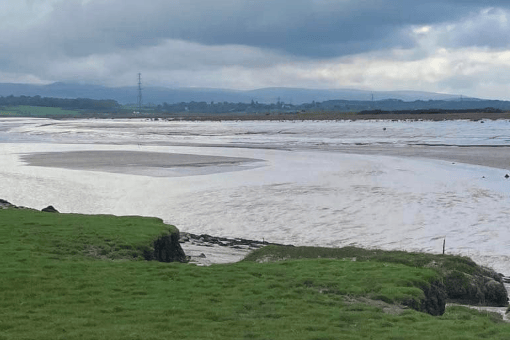Farmers have celebrated as a “completely bonkers” plan to turn hundreds of hectares of farmland along the Severn into salt marshes has been put on pause.
EDF had planned to create 340 hectares of salt marsh at four villages in Somerset and Gloucestershire to compensate for the fish that would die at Hinkley Point C. Farmers whose land would have been flooded warned it would destroy their communities and livelihoods.
But now EDF says that a new technology pioneered in the South West could be used to protect fish instead. The power company has put the salt marsh plan on pause and says it hopes it does not need to happen — but said it cannot yet rule it out entirely.
Claire Stuckey, whose parents’ land and business in Kingston Seymour in North Somerset was threatened by the proposals, posted on the Facebook group of the campaign against the plan: “We beat EDF! […] This is good news for all four sites and the wider community.
“The last few months since September 2024 have been very trying ones for us all, hopefully this decision by EDF will allow us to move on and put this all behind us.”
Farmers and landowners in the village found out their lands could be flooded on 9 September 2024 when they received letters from EDF. Martin Sewell of Kingston Seymour Parish Council compared the letters to a “surprise attack” at a packed public meeting held in October when EDF bosses met with the village.
EDF had said it had to find a way to compensate for the deaths of fish in its cooling system as it draws in water from the Severn Estuary. Although it does have a fish return mechanism to reduce the numbers of fish killed — the first British nuclear power station to have one — it is predicted that 44 tonnes of fish a year will slip through the mechanism.
The planning permission for Hinkley Point C originally stipulated that it would use 280 loudspeakers making a noise louder than a jumbo jet taking off at all hours to keep fish away from the water intakes on the sea floor, known as an acoustic fish deterrent. But EDF said it would be dangerous for divers to install the speakers and instead proposed creating salt marshes to compensate for the dead fish.
Now the company says that it has found a new technology developed in the region which scares off fish using high-frequency sounds and can be operated from the surface. The company said: “This option is now our preferred solution rather than pursuing saltmarsh creation. While we test the effectiveness of the new technology, we are pausing all design and development work on saltmarsh creation.
“We are also cancelling all of our compulsory rights of entry agreements (Section 172 notices) in the local area. As a result, we are not planning a consultation on saltmarsh creation and we hope that it will no longer be required.”
But EDF added: “Until the scientific work on the acoustic fish deterrent is complete, we are not yet able to rule out the need for saltmarsh creation in the future.”





Comments
This article has no comments yet. Be the first to leave a comment.